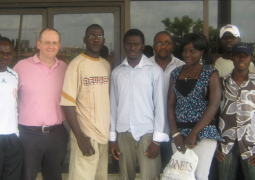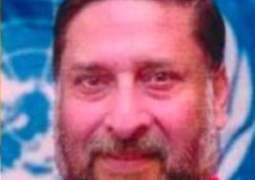“Today I would like to reaffirm the EU’s commitment to the prevention and eradication of torture and other cruel, inhuman or degrading treatment or punishment and to the full rehabilitation of torture victims in all parts of the world. This day is an occasion to speak up against this abhorrent violation of human rights and human dignity. Torture is not only a tragedy for the victims, it is also degrading and injuring those who perpetrate it and to societies which tolerate such outrage. The absolute prohibition of torture and other cruel, inhuman or degrading treatment or punishment is unequivocally established under international law. No culture of impunity is acceptable.
Recalling Resolution 66/150 adopted by the UN General Assembly on 19 December 2011, the EU reiterates its principled condemnation of all forms of torture and other cruel, inhuman or degrading treatment or punishment, including through intimidation, which are and shall remain prohibited at any time and in any place whatsoever and can thus never be justified. The EU calls upon all States to implement fully the absolute and non-derogable prohibition of torture and other cruel, inhuman or degrading treatment or punishment.The EU urges all States that have not yet done so to become parties to the Convention as a matter of priority, and calls upon States parties to give early consideration to signing and ratifying the Optional Protocol to the Convention. The EU welcomes the recent ratification of OPCAT by
The EU calls upon all States to adopt a gender-sensitive approach in the fight against torture and other cruel, inhuman or degrading treatment or punishment, paying special attention to gender-based violence.
The European Union welcomes and supports the work done by the UN, the Council of Europe and the OSCE in the fight against torture. Co-operation by States with international mechanisms, such as the UN Special Rapporteur, the UN Voluntary Fund for Victims of Torture and the Committee Against Torture, is essential to make our international system of protection and promotion of human rights effective.
Through funding at the national and the EU level, we offer substantial support to organizations that provide medical, social, legal and other assistance to many men, women and children who are victims of torture with the aim of restoring their health and dignity as human beings. Earlier this month on the 1st of June the EU launched a new call for proposals called “Fighting Impunity”, which is dedicated to supporting civil society actions against torture and other cruel, inhuman or degrading treatment or punishment. The total amount of the call for anti-torture projects is 16.215 millions Euros.
The EU takes this opportunity to commend the persistent efforts by the many NGOs and individuals working tirelessly for the prevention of torture and to alleviate the suffering of victims, as well as mobilising public opinion on this important day in the UN calendar.
We must all stand together to make the world free from torture.”
The Acceding Country Croatia*, the Candidate Countries Turkey, the former Yugoslav Republic of Macedonia*, Montenegro*, Iceland+ and Serbia*, the Countries of the Stabilisation and Association Process and potential candidates Albania and Bosnia and Herzegovina, and the EFTA countries Liechtenstein and Norway, members of the European Economic Area, as well as Ukraine, the Republic of Moldova, Armenia, Azerbaijan and Georgia, align themselves with this declaration.
* Croatia, the former Yugoslav Republic of Macedonia, Montenegro and Serbia continue to be part of the Stabilisation and Association Process.
* Iceland continues to be a member of the EFTA and of the European Economic Area.





